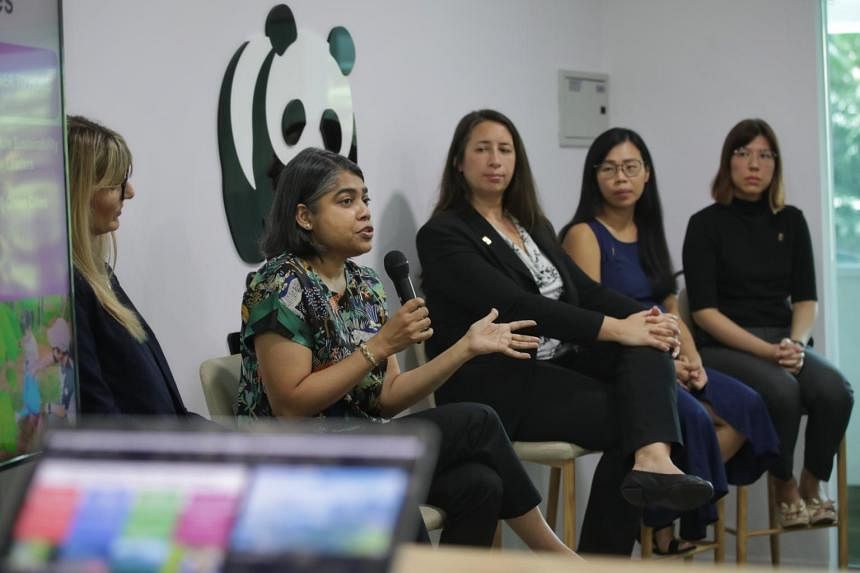SINGAPORE - Citizen sleuths scoured tens of thousands of listings on e-commerce platforms as part of their attempt to stop the illegal trade of wildlife products, the World Wide Fund for Nature Singapore (WWF-Singapore) revealed on Thursday.
The team of 342 Singapore volunteers from the organisation's Cyber Spotter Programme searched online for wildlife products, such as rhino horn paperweights or bowls, that were on sale and reported them as illegal listings to be taken down.
Since 2020, they have succeeded in removing more than 14,000 illegal listings from e-commerce platforms.
WWF-Singapore said it plans to train another 300 people over the next two years to possibly take down more than 20,000 listings.
Noting that more than 7,000 species of plants and animals are illegally traded around the world, Ms Uma Sachidhanandam, deputy director of conservation at WWF-Singapore, said: "The first step is to stop the buying, because if you don't stop the demand, the problem will always be there."
The initiative is part of the organisation's fight against the illegal wildlife trade, one of nine priorities it will be focusing on in 2023.
Other priorities include creating new sustainability metrics for financial products and coral conservation initiatives in South-east Asia.
On Thursday, WWF-Singapore also announced results to its Voices of Singapore study, which involved 600 Singaporeans across age groups and lifestyles.
The study shows that circular economy, food security and the use of renewable energy were the top sustainability priorities among the respondents.
A circular economy seeks to maximise the value of resources by keeping them in use for as long as possible.
On the other hand, working with local communities in developing countries and working with government to strengthen environmental policies and laws were among their lowest priorities.
This is despite Singapore being the first nation in South-east Asia to legislate a carbon tax to fight greenhouse emissions, with the tax expected to help the nation move significantly towards net-zero emissions by 2050.
In terms of environmental actions the respondents were willing to take, the study found that most would do so on a personal basis.
Two-thirds said they were willing to switch off their lights to conserve energy and use public transport, while half were willing to cut down on food waste.
Ms Rachel Koh, forest conservation manager at WWF-Singapore, said that while larger-scale environmental commitments might be more effective at combating climate change, small practical steps can also be instrumental in cultivating an overall shift towards caring for the environment.
Noting that Singaporeans are very pragmatic, she added: "When it comes to environmental action, it is all about the dollars and cents first… But if people begin cultivating daily habits, the hope is that they will begin to see the intrinsic value in caring for the environment."
Ms Woo Qiyun, 25, an environment advocate, hopes Singaporeans will realise that solutions and decision-making are more effective when youth and local communities in developing countries are involved.
"They are on the front lines of understanding the gaps that exist... be they in tackling plastic, new hydropower projects, shifting consumer behaviour or industry decarbonisation," she said.


